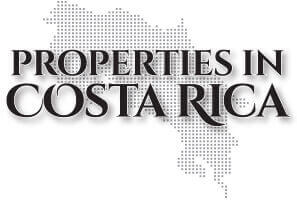TO REFOREST AND CONSERVATE PAYS OFF
Search Your Property
Costa Rica has been trying to stop deforestation and protect its natural resources. For landowners, forests are beautiful to see, but if you have a whole family to feed, that beauty is not important. People will do anything to get a steady income to support their families. Not all forests can be converted in tourist attractions. So, the owners of these pieces of land are facing a dilemma: whether to build, cut the trees to leave room for pasture for cattle or sell the wood from the trees.
The government of Costa Rica is since 1990 implementing a dream: to make forest productive for the owner without cutting a single tree. How? By paying landowners for keeping the natural resources intact!
By having a profit for all the land they do not deforest, these people will like to preserve. They win and humanity wins.
How does it work? There are some rules and a fund program that cover it all.
PSA Program Payments:
-
Conservation: $210/ha ($519/acre) in equal installments over 5 years.
-
Reforestation: $537/ha ($1326/acre), with 50% paid the first year, 20% the second year, and 10% over the following 3 years
-
Forest management: $327/ha in equal installments over 5 years.
PSA program rules:
-
PSA beneficiaries create a legal easement that remains with the property if it is sold (i.e. transferable)
-
Landowners transfer rights to sell the coal to the national government, which can then sell it on any international market. Profits go to the government and not to the landowner, but the owners get payments from the PSA.
-
Individuals are restricted to registering 2-300 hectares of land per year. Indigenous groups can register up to 600 ha/year while groups acting through local non-governmental organizations have no limits.
PSA program funding:
The main funds for PSA program were originally to come from a 15% consumer tax on fuel, of which the program would get a third (5% out of the 15%), but the Ministry of Economy never distributed that amount. In 2001, a new law was passed, assigning 3.5% of tax revenue directly to the PSA program. Even though it seems that the percentage was reduced the amount assigned that was efficiently delivered to the program increased because it was truly debited to PSA.
By 2003 tax revenues provided an average of $6.4 million/year to the program. Funds also come from contracts with private hydroelectric producers, who pay for water protection services. Coal trading was expected to provide significant income through sales of certified tradable offsets. However, this did not happen. The only actual transaction was one made to Norway, which consisted of $2 million in 1997 for 200 million tons of coal. Further funds came through a World Bank loan and a Global Environmental Entity (GEF).
